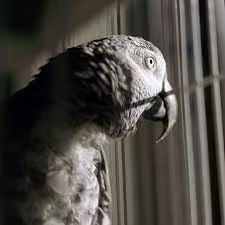Recognizing Signs of Depression in Your Pet Bird

Author: Vejay Anand
It's important to acknowledge that pet birds can experience depression, which, if left unaddressed, can lead to self-destructive behaviors and health problems. By understanding the signs of depression in birds, you can take steps to improve your bird's well-being and happiness. Here are critical indicators to watch for:
1. Appetite Loss
A significant sign of depression in birds is a loss of appetite. While this symptom can be associated with various issues, it's crucial to recognize it swiftly due to birds' rapid metabolism. If your bird stops eating for two consecutive days, consult your avian vet to investigate the matter. Weight loss can occur rapidly and be detrimental to your bird's health.
2. Aggression
Sudden changes in a bird's personality, often manifesting as aggression, are notable signs of depression. This behavior change, widespread in parrots, might be related to chronic unhappiness. Consult your vet to rule out medical concerns if you notice consistent out-of-character aggression. If your bird receives a clean bill of physical health, consider assessing environmental factors contributing to this behavior.
3. Feather Plucking
If not addressed promptly, Feather plucking can become a severe issue for your bird. Bald patches on your bird are a clear indication of this problem. Start by having your avian vet rule out underlying medical conditions. Once you confirm no medical concerns, address potential causes such as boredom or lack of social interaction. Increasing quality time spent with your bird can mitigate this issue.
4. Change in Vocalizations
As a bird owner, you know your bird's typical vocalizations. Any noticeable changes in frequency or types of vocalizations may indicate depression. Birds may resort to excessive vocalization out of boredom or frustration. If your bird becomes louder than usual, it's a sign that they may need more interaction and engagement with you.
5. Stress Bars
Stress bars on your bird's feathers are another indicator of stress or depression. While not a direct health concern, stress bars provide insights into your bird's overall happiness and quality of life. Review your bird's diet, environment, play schedule, and interactions with you. Identify areas that can be improved to enhance your bird's well-being.
By recognizing these signs, you can proactively address your pet bird's emotional and physical health, ensuring a happier and healthier companion.

